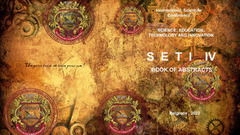Participatory planning in the post-pandemic period – towards new stakeholder communication
Апстракт
Participatory planning, as a way to reform spatial and urban planning and design during the global pandemic of virus COVID - 19 in 2020 is undergoing a serious transformation, not only in form, appearance, but also in the essential, significant sense. In this regard, the current paradigms of the need for active public participation directly related to spatial and urban planning and decision-making through public workshops, round tables, discussions and debates that require the physical presence of participants are changing. Having that in mind new participatory settings are defined and they are migrating to virtual space. New circumstances raise the question of continuing active participation activities in a (permanently?) changed environment and defining new, hybrid ways of engaging stakeholders in participatory planning activities. Thus, the participatory tools and instruments used in the pre-pandemic are changing significantly, opening new opportunities for the active participation ...of experts in projects of wider community importance.
The paper will consider previous ways of engaging stakeholders in spatial and urban planning processes, as well as opportunities to change the participatory paradigm, which may now include hiring remote experts, where territorial distance is no longer an obstacle to participation. Through examples of different types of engagement in pandemic and post-pandemic conditions, advantages and critiques of new hybrid ways of participation will be given.
Кључне речи:
participatory planning / post-pandemic / spatial and urban planning / stakeholdersИзвор:
Fourth International Scientific Conference ′′Science, Education, Technology and Innovation – SETI IV 2022, 2022, 393-400Издавач:
- Belgrade : IRASA – International Research Academy of Science and Art Belgrade
Финансирање / пројекти:
- Министарство науке, технолошког развоја и иновација Републике Србије, институционално финансирање - 200006 (Институт за архитектуру и урбанизам Србије, Београд) (RS-MESTD-inst-2020-200006)
Напомена:
- Editors: Vladica Ristić, Marija Maksin, Jelena Bošković
Група
RAUmPlanTY - CONF AU - Nenković-Riznić, Marina AU - Simonović Alfirević, Sanja PY - 2022 UR - http://raumplan.iaus.ac.rs/handle/123456789/659 AB - Participatory planning, as a way to reform spatial and urban planning and design during the global pandemic of virus COVID - 19 in 2020 is undergoing a serious transformation, not only in form, appearance, but also in the essential, significant sense. In this regard, the current paradigms of the need for active public participation directly related to spatial and urban planning and decision-making through public workshops, round tables, discussions and debates that require the physical presence of participants are changing. Having that in mind new participatory settings are defined and they are migrating to virtual space. New circumstances raise the question of continuing active participation activities in a (permanently?) changed environment and defining new, hybrid ways of engaging stakeholders in participatory planning activities. Thus, the participatory tools and instruments used in the pre-pandemic are changing significantly, opening new opportunities for the active participation of experts in projects of wider community importance. The paper will consider previous ways of engaging stakeholders in spatial and urban planning processes, as well as opportunities to change the participatory paradigm, which may now include hiring remote experts, where territorial distance is no longer an obstacle to participation. Through examples of different types of engagement in pandemic and post-pandemic conditions, advantages and critiques of new hybrid ways of participation will be given. PB - Belgrade : IRASA – International Research Academy of Science and Art Belgrade C3 - Fourth International Scientific Conference ′′Science, Education, Technology and Innovation – SETI IV 2022 T1 - Participatory planning in the post-pandemic period – towards new stakeholder communication SP - 393 EP - 400 UR - https://hdl.handle.net/21.15107/rcub_raumplan_659 ER -
@conference{
author = "Nenković-Riznić, Marina and Simonović Alfirević, Sanja",
year = "2022",
abstract = "Participatory planning, as a way to reform spatial and urban planning and design during the global pandemic of virus COVID - 19 in 2020 is undergoing a serious transformation, not only in form, appearance, but also in the essential, significant sense. In this regard, the current paradigms of the need for active public participation directly related to spatial and urban planning and decision-making through public workshops, round tables, discussions and debates that require the physical presence of participants are changing. Having that in mind new participatory settings are defined and they are migrating to virtual space. New circumstances raise the question of continuing active participation activities in a (permanently?) changed environment and defining new, hybrid ways of engaging stakeholders in participatory planning activities. Thus, the participatory tools and instruments used in the pre-pandemic are changing significantly, opening new opportunities for the active participation of experts in projects of wider community importance.
The paper will consider previous ways of engaging stakeholders in spatial and urban planning processes, as well as opportunities to change the participatory paradigm, which may now include hiring remote experts, where territorial distance is no longer an obstacle to participation. Through examples of different types of engagement in pandemic and post-pandemic conditions, advantages and critiques of new hybrid ways of participation will be given.",
publisher = "Belgrade : IRASA – International Research Academy of Science and Art Belgrade",
journal = "Fourth International Scientific Conference ′′Science, Education, Technology and Innovation – SETI IV 2022",
title = "Participatory planning in the post-pandemic period – towards new stakeholder communication",
pages = "393-400",
url = "https://hdl.handle.net/21.15107/rcub_raumplan_659"
}
Nenković-Riznić, M.,& Simonović Alfirević, S.. (2022). Participatory planning in the post-pandemic period – towards new stakeholder communication. in Fourth International Scientific Conference ′′Science, Education, Technology and Innovation – SETI IV 2022 Belgrade : IRASA – International Research Academy of Science and Art Belgrade., 393-400. https://hdl.handle.net/21.15107/rcub_raumplan_659
Nenković-Riznić M, Simonović Alfirević S. Participatory planning in the post-pandemic period – towards new stakeholder communication. in Fourth International Scientific Conference ′′Science, Education, Technology and Innovation – SETI IV 2022. 2022;:393-400. https://hdl.handle.net/21.15107/rcub_raumplan_659 .
Nenković-Riznić, Marina, Simonović Alfirević, Sanja, "Participatory planning in the post-pandemic period – towards new stakeholder communication" in Fourth International Scientific Conference ′′Science, Education, Technology and Innovation – SETI IV 2022 (2022):393-400, https://hdl.handle.net/21.15107/rcub_raumplan_659 .



